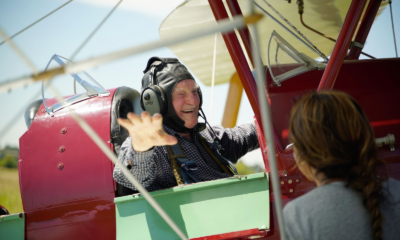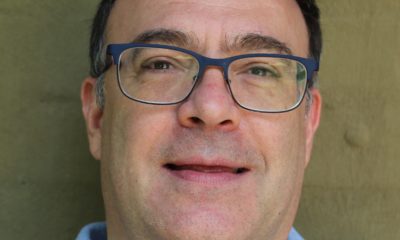
World

SA warmly hosts Russia’s Lavrov, Holocaust analogies and all
In spite of repeated claims that it’s neutral on the war in Ukraine, South Africa continues cozying up to Russia. The visit of Russia’s Foreign Minister Sergey Lavrov to South Africa on Monday, 23 January, and his warm reception has angered many. He’s the voice of the Kremlin in its devastating war on its neighbour, and he’s prone to make blatantly antisemitic, odious Holocaust comparisons. Critics and citizens alike aren’t impressed.
Lavrov was in South Africa at the start of a four-state southern African tour that will include Angola, Botswana, and eSwatini. He was hosted in Tshwane at the department of international relations and cooperation (Dirco) by his South African counterpart, Dr Naledi Pandor. The body language between the two at their press conference was congenial, even familial, underlining ever-closer bilateral relations. They were all smiles as they shook hands. Both ministers vigorously defended next month’s planned naval exercises between South Africa, China, and Russia off the coast of KwaZulu-Natal. Not a negative word about Russia’s almost-year-long invasion of Ukraine was uttered by Pandor. Lavrov repeated Russia’s justification for what he called its “special military operation in Ukraine”, fulminated against the West, and blamed Kyiv for not seeking peace.
Last week in Moscow, Lavrov said, “Like Napoleon, who mobilised nearly all of Europe against the Russian Empire, and Hitler, who occupied the majority of European countries and hurled them at the Soviet Union, the United States has created a coalition of nearly all European member states of NATO [the North Atlantic Treaty Organisation] and the EU [European Union], and is using Ukraine to wage a proxy war against Russia with the old aim of finally solving the Russian question, like Hitler, who sought a final solution to the Jewish question.”
This isn’t Lavrov’s first Holocaust analogy. Milton Shain, emeritus professor of historical studies at the University of Cape Town, told the SA Jewish Report, “Lavrov seems to think that playing the Holocaust card is politically astute. He did this tangentially once before when he contended that the Ukrainians were Nazis and that the fact that [President Volodymyr] Zelenskyy is Jewish doesn’t obviate this because Hitler had ‘Jewish blood’. I don’t know enough about the veteran Russian foreign minister to judge whether he has a ‘Jewish problem’, but it does seem to me that he underestimates his audience, including South Africans who in a recent survey overwhelmingly opposed Russia’s actions.
“Of course, the African National Congress has a different view. Strikingly, Naledi Pandor initially condemned Russia’s unprovoked attack on Ukraine [in a Dirco statement on 24 February 2022], but she soon changed her mind, no doubt under pressure from her party. South Africa’s government shouldn’t be hosting Lavrov, nor any Russian dignitary at a time like this. Nelson Mandela spoke of the need for an ethical foreign policy. I’m afraid this isn’t on display.”
Adam Mendelsohn, the director of the Kaplan Centre for Jewish Studies & Research, and associate professor of history at the University of Cape Town said, “This sounds like the expansion of a theme that Russia advanced earlier in the war, i.e. the war as denazification. Initially the claim was that Russia’s invasion was justified as necessary to root out fascism in Ukraine; now Russia is presented as the object of a genocidal conspiracy akin to the Final Solution. What does this tell us? Presumably such statements are intended for domestic consumption within Russia. But they may also play to those inclined to see Western conspiracy everywhere. In truth, it’s pathetic, a demonstration of how low Russia’s standing [and justifications] have sunk. Shame on South Africa for any association with Putin’s regime!”
David Saks, the associate director of the South African Jewish Board of Deputies, said, “Even allowing for the post-rationalist, fake-news culture in which international politics so often plays out, Lavrov’s cynical inversion of historical fact and current-day realities is genuinely shocking. It’s outrageous enough for Russia, currently engaging in the worst act of predatory aggression against another European country in more than 80 years, to assume the role of victim, but to draw comparisons with so extreme a crime as the genocide of European Jewry takes Holocaust distortion to almost surreal new levels. Such wild rhetoric may expose even more the futility of Lavrov’s attempts to defend the indefensible, but they also have the effect both of diminishing the true extent of Nazi atrocities and tarnishing the memory of millions of its victims.”
The Ukrainian Association of South Africa held a small but colourful protest outside Dirco’s headquarters on Monday. Honorary President Dzvinka Kachur said, “Lavrov has represented the Kremlin’s authorities for almost 20 years. It’s [Vladimir] Putin’s geopolitical strategy to manipulate information and share lies via diplomatic channels and mass media.” She said the Kremlin avoided discussion of the non-aggression agreement made between the Union of Soviet Socialist Republics and Nazi Germany in 1939 (the Molotov-Ribbentrop Pact), and “instead, it paints the victims of Russia’s aggression – whether Chechnya, Georgia, or Ukraine – as aggressors, terrorists, or Nazis. It’s obvious that the Kremlin and Lavrov are aiming to distort history and abuse the tragedy of the Holocaust to defend their violence and avoid prosecution for more than 58 000 documented war crimes since February 2022.”
Next month’s joint naval exercises have been dubbed “Exercise Mosi II” (mosi means “smoke” in Setswana). The first joint war games between the three countries were held in 2019. But then, the Russians weren’t in the middle of a vicious war.
One would think that the optics aren’t ideal for South Africa. The exercises will coincide with the one-year anniversary of the Russian invasion of Ukraine, and thus draw more international and local ire and attention than they otherwise might. But, perhaps, this is precisely what South Africa wants. What better demonstration could there be of it pursuing an independent foreign policy and not giving two hoots about what the West thinks? It’ll be giant thumbs in the eyes of Washington, London, and Brussels.
Dirco was approached for comment, but had not responded by the time of going to press.
Photo Credit: AwakeMzansi Facebook page










